Like actors and musicians, restaurateurs often regard America as the pinnacle when it comes to measuring success. Making it big across the pond can create opportunities and generate wealth on an almost unbelievable scale, but the size of the gamble often deters businesses from taking the leap.
Now, however, a growing number of restaurant groups have earmarked the US as the final frontier for their expansion plans, with some already having successfully dipped their toes in the water and others on the verge of doing so. Below we list the key restaurant brands that believe the US is a land of opportunity too good to pass up.
Pizza Express
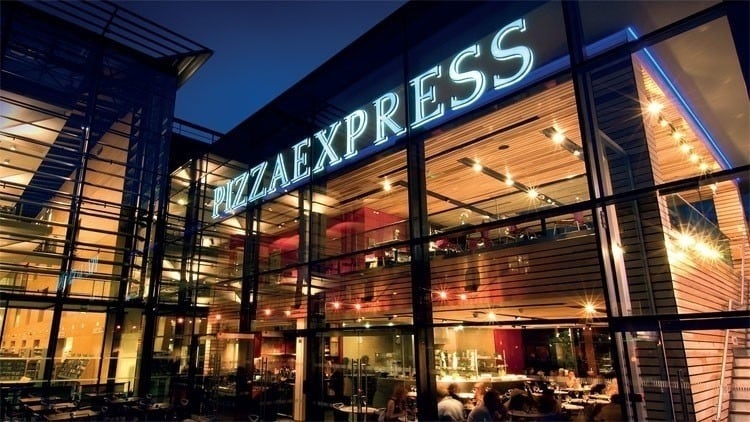
The UK’s OG casual dining brand already has around 100 sites overseas in locations including Hong Kong, the UAE and the Republic of Ireland (it trades under the brand name Milano within the latter country). Now Pizza Express is looking to succeed where many other casual dining brands have failed by crossing the pond to ‘fill a gap in the premium pizza market’. Pizza Express has tried to crack the US market once before through a joint venture with Avado Brands under the name San Marzano, but while a handful of sites opened on the East Coast in 1998 and 1999, they closed around the year 2000. Now it is having another stab at it with a launch in partnership with Purple Square Management Company, a franchise business founded in Florida. The first restaurant is due to open in Florida later this year, although exactly where is yet to be revealed, but more are expected to follow. “We know this concept has the potential to resonate with US consumers in a truly unique way,” says Vik Patel, president and CEO of Purple Square Management Company. “This is just the beginning of a journey we’re confident will inspire a new wave of dining experiences across the country.” There is certainly a gap in the US pizza market for a more premium operator but whether Pizza Express is the brand to fill it remains to be seen.
Chotto Matte
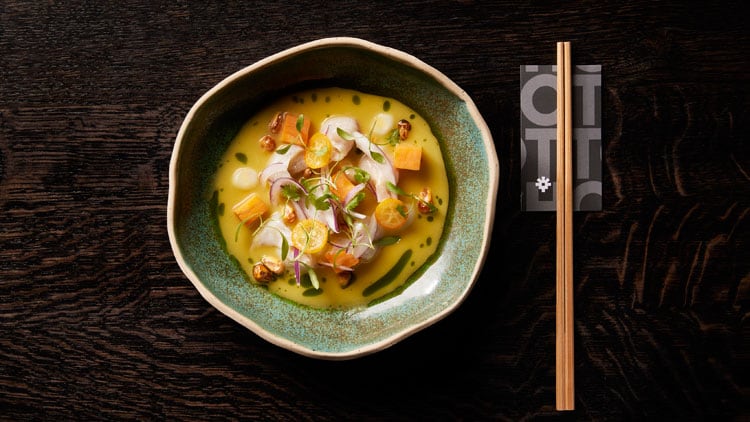
The Soho-founded Japanese-Peruvian restaurant brand made its international debut with a site in Miami in 2018 and followed up with a site in San Francisco in 2023 (the group also operates a restaurant in Toronto). Talking to Restaurant in 2023, Chotto Matte founder Kurt Zdesar said he also had sites lined up in Los Angeles, Nashville and Philadelphia but these have yet to materialise, possibly because of the country’s complex building permit system that varies from state to state (the group’s San Francisco restaurant was held up for the best part of two years putting Zdesar in the unenviable position of paying rent on a site that had yet to open its doors). “The problem is that these departments don’t talk to each other, and the changes one department makes can disrupt something that has already been signed off by another department. It’s a crazy system,” he says. All of Chotto Matte’s US sites are company owned, in contrast to its sites in the Middle East, which are franchises.
San Carlo
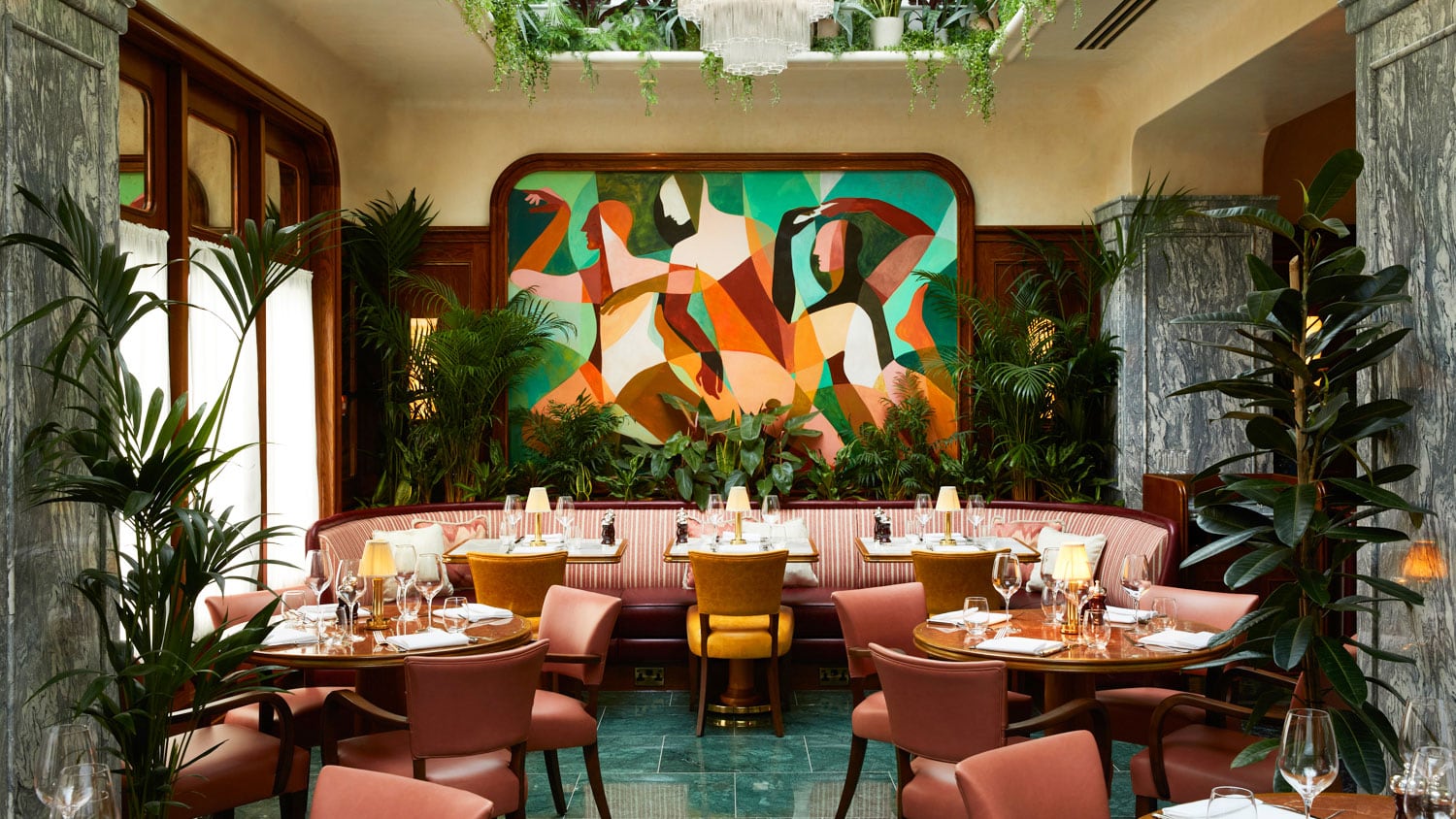
San Carlo was one of the UK’s first restaurant groups to pursue international expansion opening its first overseas site way back in 2011. Having enjoyed considerable success in the Middle East - it now operates over 10 sites there - the group will make its US debut in Miami later this year. The restaurant - which will be operated under the group’s Signor Sassi brand - is a franchise but, unusually, San Caro will be overseeing operations due to its US partner being a real estate investment company rather than a restaurant operator. San Carlo managing director Marcello Distefano told Restaurant that the new restaurant was a test site. “It’s a big deal for us. I’d love to do more in the US but I’m aware that it’s a very different market. America is really exciting. Like Dubai, Miami has enjoyed huge growth post-Covid”. Part of the reason for Distefano’s excitement is the turnover figures premium casual restaurant groups in the US are enjoying. “You can get a list of what the major players are doing there,” he explains. “When I first saw the figures, I thought someone was making it up. People approach food and drink in a different way in America. They are willing to spend more.”
JKS

The group behind restaurant brands including Gymkhana, Berenjak and Brigadiers has already expanded internationally with sites in Riyadh (Gymkhana) and Dubai, Sharjah and Soho House in New York (Berenjak) through a licensing agreement and partnerships. Now it intends to open its first owner operated site and has chosen the US – and more specifically New York – in which to do it. Speaking at Restaurant’s R200 conference earlier this month, Josh Kirk, JKS commercial director, said that the company’s expansion into the Middle East, as well as its limited-time residency of Berenjak at DUMBO House in New York, had given it the confidence to do something of its own. “We are fortunate to have a big international following,” he said. “Of the tourists who are coming to our London restaurants, a huge proportion are from the UAE or the US, and that has given us the confidence to understand where we think our existing brands will go. It’s exciting that we’ve had customers say they have eaten in Gymkhana Riyadh or Berenjak in New York.” Last year it was announced that JKS had signed a 15-year lease for a new 7,900sq ft restaurant at the ground and lower levels at 1245 Broadway in the NoMAD district of New York, with it set to open with in the next 12 to 15 months, although the restaurant group is yet to announce which of its brands it intends to bring across the pond. “We think there’s a huge opportunity for Indian restaurant growth in the US,” said Kirk. “We could have gone down the licensing franchise route, but the opportunity is so big, and we have worked so hard so to retain control over the brand, so our view is to build our own team out there, start with New York and see where we go from there.”
Hawksmoor
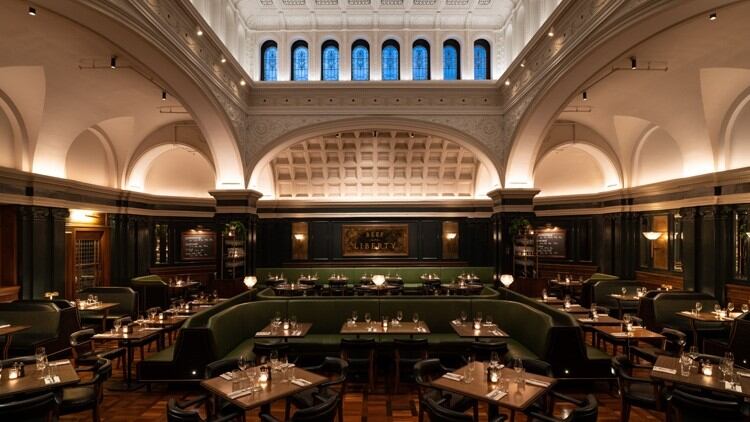
Hawksmoor owners Will Beckett and Huw Gott led the recent charge stateside when they opened a restaurant in New York in 2021. Had the duo opened in their initially intended site at Three World Trade Center, the skyscraper that forms part of the rebuilding of the twin towers, things might have been different, but they ended up taking the former United Charities Building between Madison Square Park and Gramercy Park, a site much more in tune with their approach and ethos in the UK, and the rest is history. Following on from this success, Hawksmoor opened a second US restaurant in Chicago last year in a building that started life as a cable car powerhouse in 1887 during the heyday of Chicago’s cable car system and hinted that this was unlikely to be its final foray into the US. Speaking at the time of the Chicago launch, Beckett said that the group’s expansion was focused on North America. “Over the years we’ve learned to set our sights higher, both in terms of growth and of the integrity with which we want to build our company,” he said. “We believe Hawksmoor has the capability to be one of the world’s great restaurant brands, and Chicago is an important step as we continue to develop our presence in the United States.”
Big Mamma
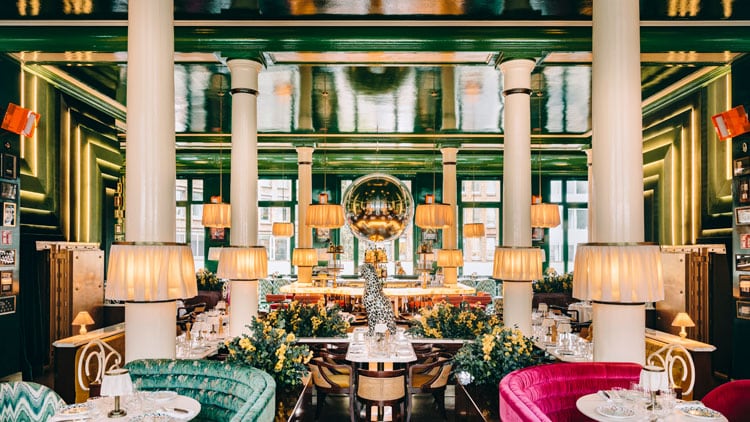
In September last year private equity company McWin acquired a majority stake in the French-owned Italian restaurant group in a move that would see the group continue to expand across Europe, as well as look towards new locations such as the Middle East and the US. European expansion has thus continued with new sites in Milan, Brussels and Barcelona and others to follow, but the US is also very much on the group’s radar. “We’ve spent a lot of time looking at different states and cities such as Florida, Chicago, New York, and Texas,” says Big Mamma co-founder Tigrane Seydoux. “Texas and Florida are booming and so we will focus on one of them, probably Florida to start with.” Seydoux isn’t ready to reveal the group’s wider ambitions for the US but given its track record of opening in Europe – it has restaurants in France, Italy, UK, Germany, Spain, and Belgium – it’s probably safe to say that if its US debut is a success more sites will follow over there. “We will focus on one for the first year and go there in a very humble way,” adds Seydoux. “The day we think we have a good concept that we can replicate we are dead. We will go to the US as if we are creating the company from the very first day. This is what we try to do every time we open in a new country.”
Dishoom
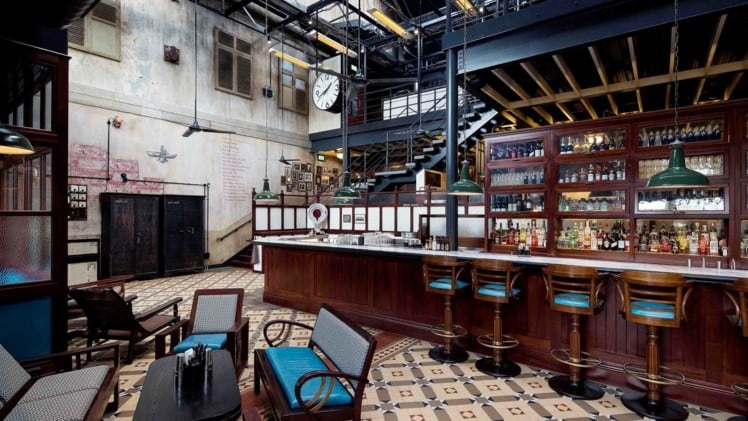
A move to the US has been on the cards for Dishoom for some time, with the Indian restaurant group having looked a potential locations stateside in 2019 and 2020 before the pandemic struck. While CEO Brian Trollip says there is every chance that the company would have had a US restaurant by now had the world not gone into lockdown, he believes the protracted timeframe has allowed it “to do a lot of learning, to slow down, to ask more questions and build stronger relationships”. The company is now actively looking for a site again and has pinpointed New York as the location for its first restaurant in the US following a successful pop-up it ran in the city with local restaurant Pastis, with a view to opening something in early 2027. Last year it also announced it was seeking an investor or partner to fund the move. “We’ve been looking fairly patiently for a long time now and have some amazing people helping us on the ground in the US,” says Trollip. “With this being the case, we’ve had some amazing opportunities put in front of us. The tricky part is getting to know a city so well that you’re able to understand exactly what location within that city is likely to be the most perfect fit. Someone can furnish you with all the data in the world and it’s still no substitute for truly understanding a city and the way that people live within it. We’ve all seen places open up in locations that would have looked incredible on paper but just aren’t in reality. That’s something that we’re pretty paranoid about and working very hard to avoid.”
Chaiiwala
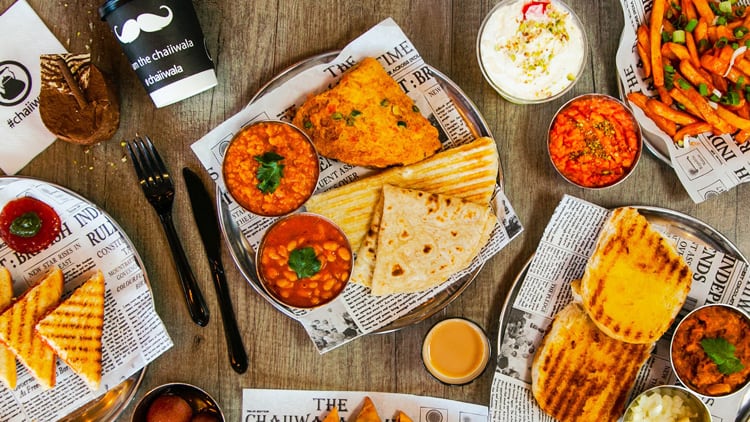
Having grown to nearly 100 sites in the UK, alongside a handful in Canada and Dubai, Indian street food café chain Chaiiwala is preparing to kick-off its expansion into the US market having recently put out a call for franchise partners. Co-founder Sohail Ali, who launched the Indian street food café chain with Muhummed Ibrahim in Leicester in 2016, recently said: “We are actively seeking experienced franchise partners, distributors, supply chain specialists, and real estate professionals to join us on this journey. Let’s connect and create something amazing together, one chaii at a time.” It forms part of a wider ambition to strengthen and accelerate both the group’s domestic and international expansion to 500 sites with a focus on the US, Canada, and the Middle East. The concept feels primed for the US’s burgeoning QSR market, with the group operating a number of formats including high street locations, small kiosks, drive-thru restaurants and retail park units. Its menu is a fusion of Indian street food with a Western twist. Options include the English-ish breakfast; shakshuka; aloo paratha; masala chips; samosa chaat; and a selection of rotis and parathas.
The Ivy

Having successfully launched an outpost of his Sexy Fish restaurant in Miami in 2022, Richard Caring is now looking at plans to take The Ivy to the US. A document sent out to potential investors last year detailed plans to export the restaurant brand across the Atlantic, with a spokesman for Caring subsequently saying that the group was ‘looking at sites in America for The Ivy in 2025’. Further details, however, are yet to be revealed.
Itsu
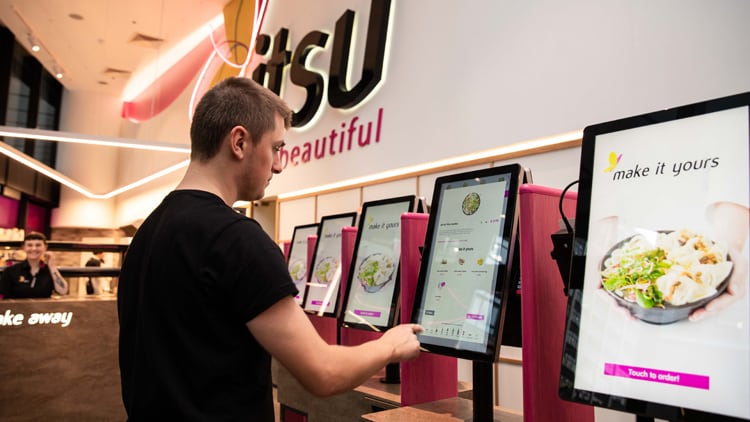
Having previously tried to crack the US market back in 2018, Itsu is gearing up for a second bite of the sashimi with founder Julian Metcalfe recently revealing that the group is planning to have three or four Itsu restaurants in New York in the next few years (the group previously operated a branch in Midtown Manhattan). As well as restaurants, Itsu plans to ‘go big on grocery’ in the US, building on the retail offering it has developed in the UK. Metcalfe, who previously led Pret a Manger when it was expanding into the US market, believes Itsu is primed for success Stateside. Speaking to US magazine Big Think, he said: “One of the problems we had taking Pret to the US was its lack of customization. But Itsu makes all the hot food to order, so people can choose their own options. It might take three minutes, but that’s OK nowadays. In the early days at Pret, people had nothing to do for those three minutes, and grew frustrated staring at the floor. Today it’s a different world — everyone’s happy to wait three minutes surfing their phone or social media. Some people actually enjoy being asked to wait.”
.

